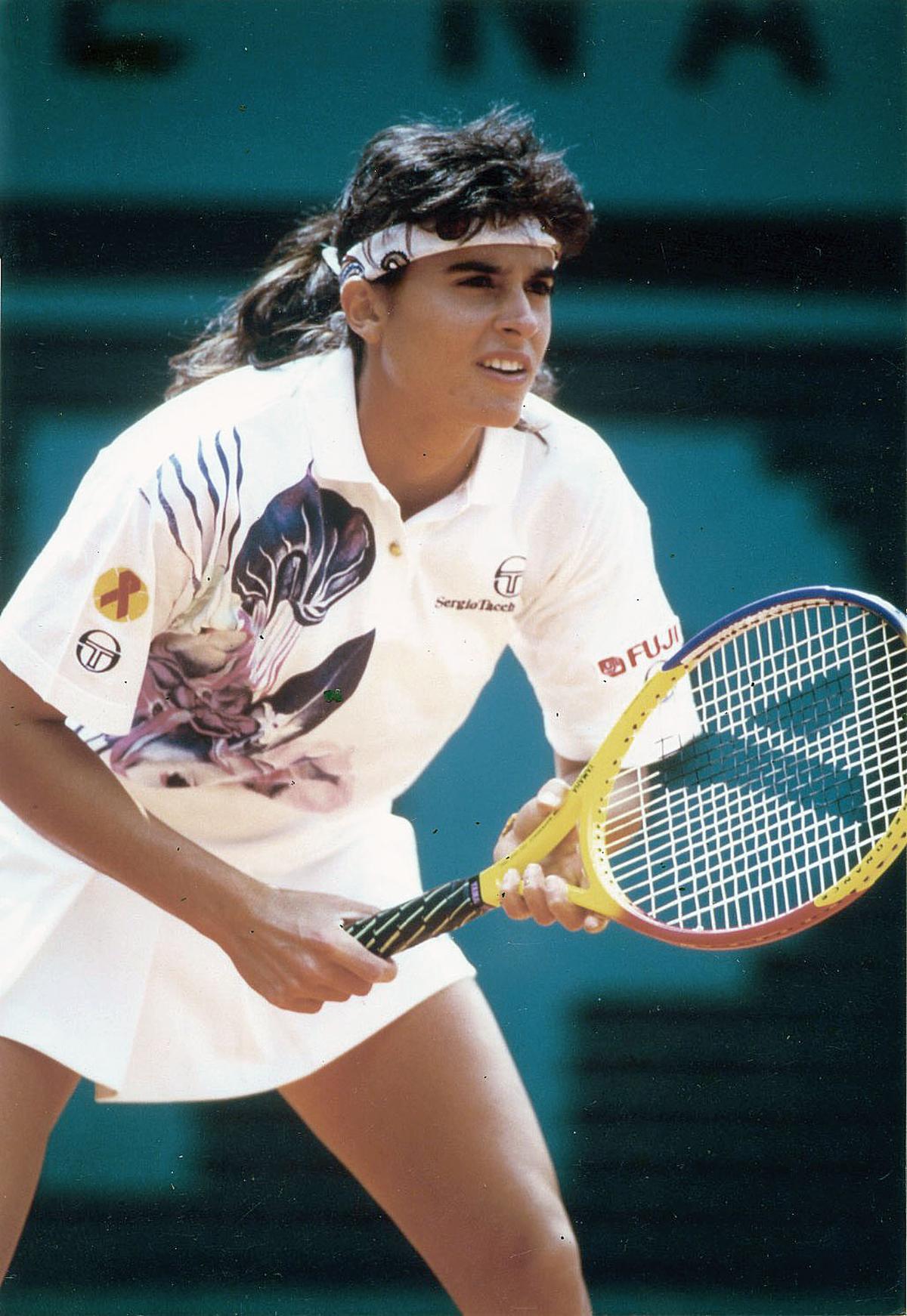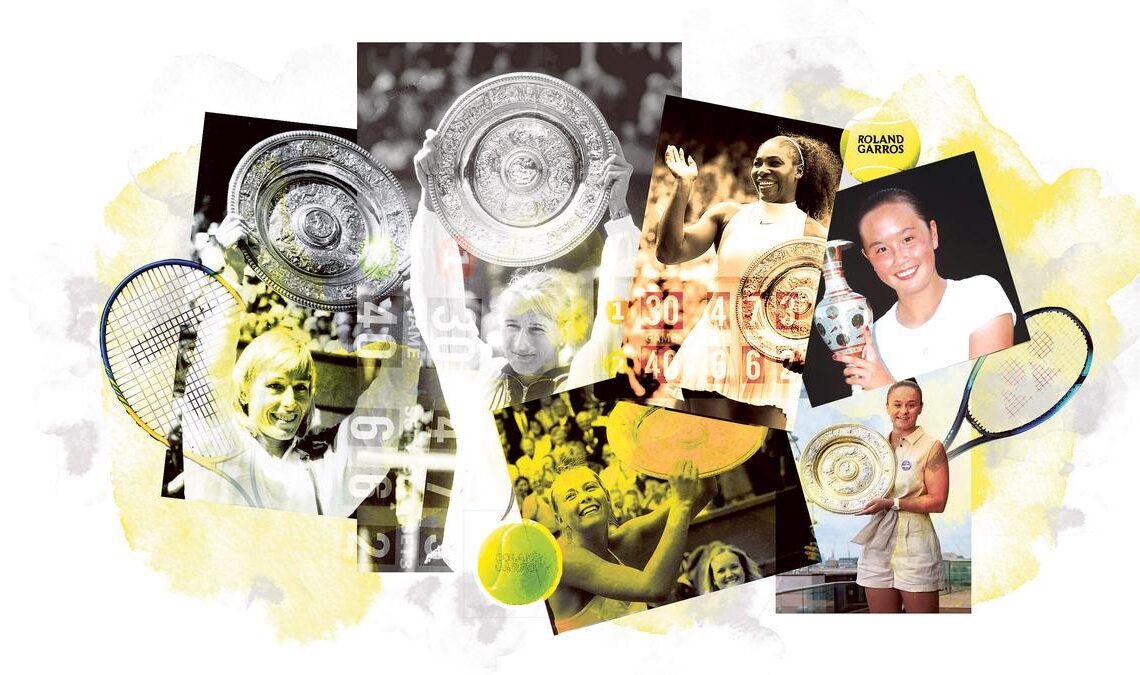Bring me the sweat of Gabriela Sabatini, wrote the poet Clive James, going on to add, In a green Lycergus cup with a sprig of mint,/ But add no sugar –/ The bitterness is what I want./ If I craved sweetness I would be asking you to bring me/ The tears of Annabel Croft.
It was the time of Martina and Steffi and Francois and Tracy and Hana — we were on first-name terms with them all. Sabatini won the U.S. Open in 1990, Croft was Britain’s top-ranked player who retired at 26. It was the time of ball boys selling off Sabatini’s sweat-stained towels for ten pounds each.
Sport is not necessarily about talent attracting the fans and the money. As more than one writer has pointed out, it is a soap opera. Fans and advertisers, television and media come for the people, their stories, their love life, their weaknesses, their looks, their idiosyncrasies.
Where are today’s Sabatinis and Crofts? Or Clive Jameses, for that matter? The best we can do is put together Iga Świątek, Aryna Sabalenka and Elena Rybakina as the female counterparts of the Federer-Djokovic-Nadal trio at the top of the game. Does that reflect failure of imagination in writing or is something lacking in the women’s game itself?

Argentina’s Gabriela Sabatini in action during a tennis tournament in 1995.
| Photo Credit:
The Hindu Archives
More appeal for men’s tennis
In an essay in the 1980s, novelist Martin Amis said, “The women’s game is now more interestingly poised than the men’s — as well as being better fun to watch.” Last year, former Wimbledon champion Amelie Mauresmo said, “Right now you have more attraction, appeal in general, for the men’s matches.”
At this year’s French Open, former player and commentator Sue Barker said women’s tennis needs more big rivalries. “What we need is a few really good players to be in the Slam finals for a few years and build up that rivalry.”
Between 2016 and 2022, the No. 1 and No. 2 women players faced each other in a tournament final only on two occasions. The game needs rivalries — or dominance — to attract fans. It needs money too, something the Women’s Tennis Association (WTA) has been made conscious of. In March, WTA sold off 20% stake in its Tour to a private equity firm, CVC Capital Partners.
More tellingly, it decided after a 16-month suspension that women’s tennis would return to China.
In November 2021, Chinese player and world doubles No.1 Peng Shuai had made allegations of sexual harassment against a…
Click Here to Read the Full Original Article at | The Hindu…

